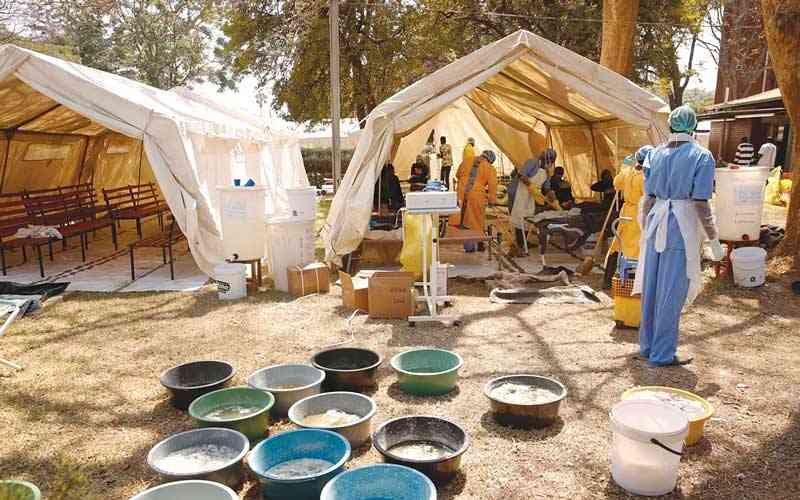
NEWSDAY yesterday published a story in which residents of Harare are accusing council officials of allegedly demanding bribes to fix broken sewer and water pipes.
The allegations made by residents’ associations come as Zimbabwe is battling a second cholera outbreak in 15 years after the deadly 2008 occurrence which claimed over 4 000 lives.
The cholera outbreak, which began in February, is showing no signs of abating. In fact, the waterborne disease is becoming more lethal.
Statistics from the Health and Child Care ministry showed that there were a cumulative total of 8 087 suspected cholera cases, 51 laboratory confirmed deaths, 152 suspected cholera deaths and 1 241 laboratory confirmed cases reported as of November 19.
The ministry said the outbreak has now spread to more than the 17 traditional cholera hotspot districts of Buhera, Chegutu, Chikomba, Chimanimani, Chipinge, Chitungwiza, Chiredzi, Harare, Gokwe North, Marondera, Mazowe, Shamva, Mutare, Murehwa, Mwenezi, Seke and Hwedza.
Harare last week declared a state of emergency as it moves to contain the waterborne disease which has spread to a number of suburbs.
Considering that Harare has declared a state of emergency as it battles cholera, one would have expected to see all hands on deck.
Alas, some greedy council officials believe it is their time to eat and are extorting money from residents to repair burst water and sewage pipes.
- Mavhunga puts DeMbare into Chibuku quarterfinals
- Bulls to charge into Zimbabwe gold stocks
- Ndiraya concerned as goals dry up
- Letters: How solar power is transforming African farms
Keep Reading
Desperate residents are forced to fork out money to lubricate the wheels of council employees that are moving slowly.
This behaviour has no place in any society. What it tells us is that supervision is virtually non-existent in the Harare City Council.
We urge city father to descend on the bribe-taking council officials. We are leaving in abnormal times and anyone who sabotages the fight against cholera deserves stiff punishment.
The cholera outbreak requires combined forces to contain. Water supplies must be in place and burst sewage pipes must be quickly repaired. The government must intervene and provide bowsers to areas which have no water.
It cannot fold its arms saying it is council’s role if the cholera outbreak is to be contained.
Residents should also play their part by practising clean hygiene.
The disease is contracted from a bacterium that is generally transmitted through contaminated food or water.
The waterborne disease is spreading fast since the outbreak started in Chegutu in February. To date, suspected and confirmed cases have been reported in 46 districts in all the country’s 10 provinces, according to the ministry of Health and Child Care.
The COVID-19 pandemic gave us enough lessons that throwing away the reins will backfire spectacularly. Similarly, it behoves everyone to be on guard as the festive season beckons.
The battle against cholera requires the same combined forces that were expended in the fight against COVID-19.






